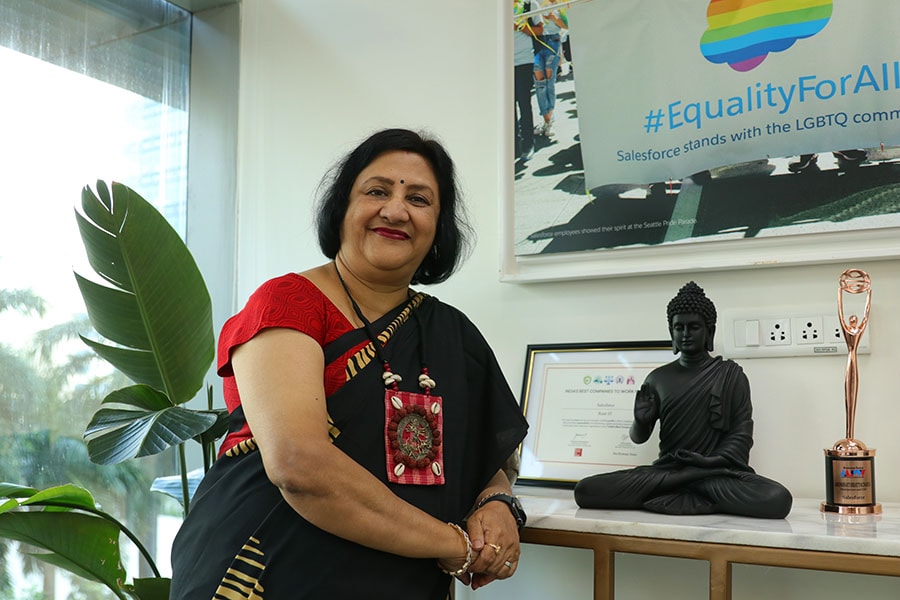
'Don't believe AI will lead to mass job losses': Arundhati Bhattacharya, Salesforce India CEO
Arundhati Bhattacharya talks about how AI will prompt reskilling and upskilling, the extent of generative AI adoption by India Inc, and how the India Stack gives the country a competitive edge
 Arundhati Bhattacharya, chairperson and CEO, Salesforce India
Image: Mexy Xavier
Arundhati Bhattacharya, chairperson and CEO, Salesforce India
Image: Mexy Xavier
As artificial intelligence (AI), particularly generative AI, matures by the day, India Inc is still “quite a distance” from AI adoption, says Arundhati Bhattacharya, chairperson and CEO, Salesforce India.
AI requires huge capacity for crunching data, which is difficult and expensive with on-premise systems, which is where cloud systems come in. But even the use of cloud is not all that common in India, according to her. “So, unless we see more adoption of cloud itself, it will be very difficult for India Inc to adopt AI, and generative AI [in particular] as it is even bigger as far as data sets are concerned,” she says. “We need to be able to go to the cloud.”
That said, she adds, India has always been “able to leapfrog into AI and generative AI”, as there is sufficient awareness, knowledge and ability to use technology in the country. According to Bhattacharya, the India Stack gives the country a competitive advantage as it is one-of-its-kind. There are many features in the Indian public goods space, like Aadhaar, UPI, DigiLocker, that are huge enablers. “Because we have these public goods that enable digital transformations, we have a very big advantage.” But companies need to be agile and nimble regarding technology adoption. “Companies that are not keeping pace are likely to be left out,” she says.
Bhattacharya was speaking to the media at the Salesforce World Tour Essentials event in Mumbai on June 26, where she also announced the launch of Salesforce Starter, a CRM platform that will include sales, service and email outreach tools in one suite for micro, small and medium enterprises (MSMEs), which she says, “form the backbone of India”. Salesforce, globally and in India, has launched SlackGPT, a generative AI experience integrated into its instant messaging platform Slack, which will weave in capabilities from Salesforce’s proprietary EinsteinGPT for customer data.
The Indian market’s response to the company’s offerings has been “huge” she says, mainly because of how they stand to improve efficiency and productivity. She believes, “AI will power India to its potential and help provide tools we haven’t been able to provide to millions of people till date” across critical areas like education and health care. Giving an example of the quick pace of adoption AI has been seeing, she points to how the telephone and the internet took many years to find mainstream use, but ChatGPT managed to get 100 million users in just two months.








